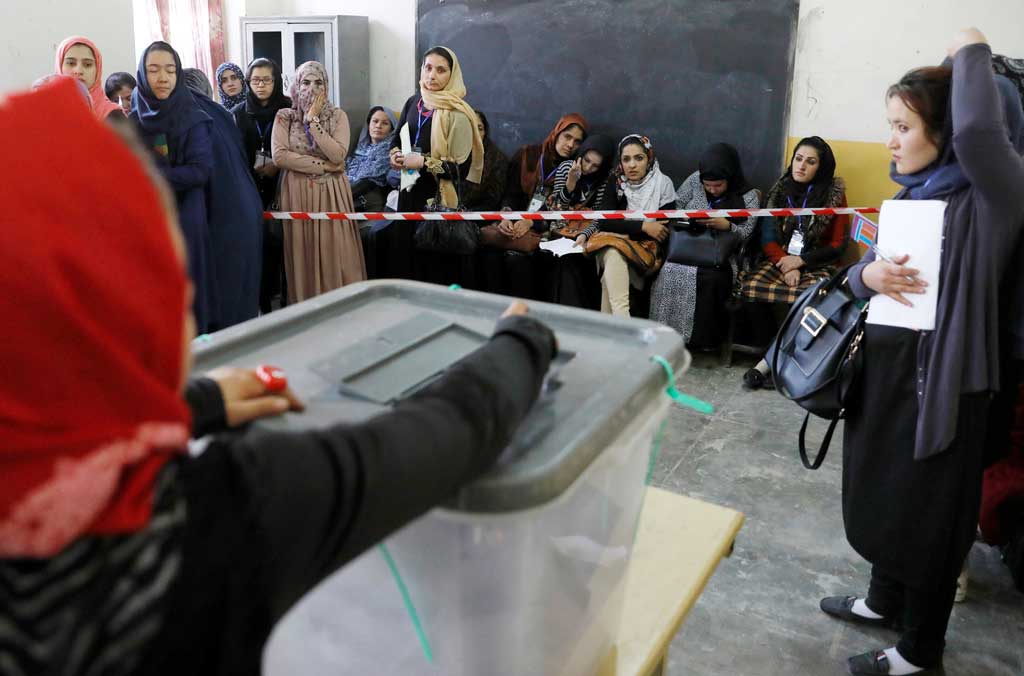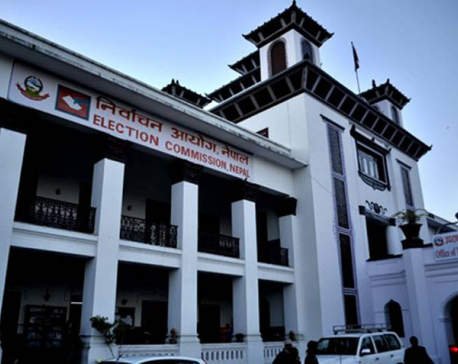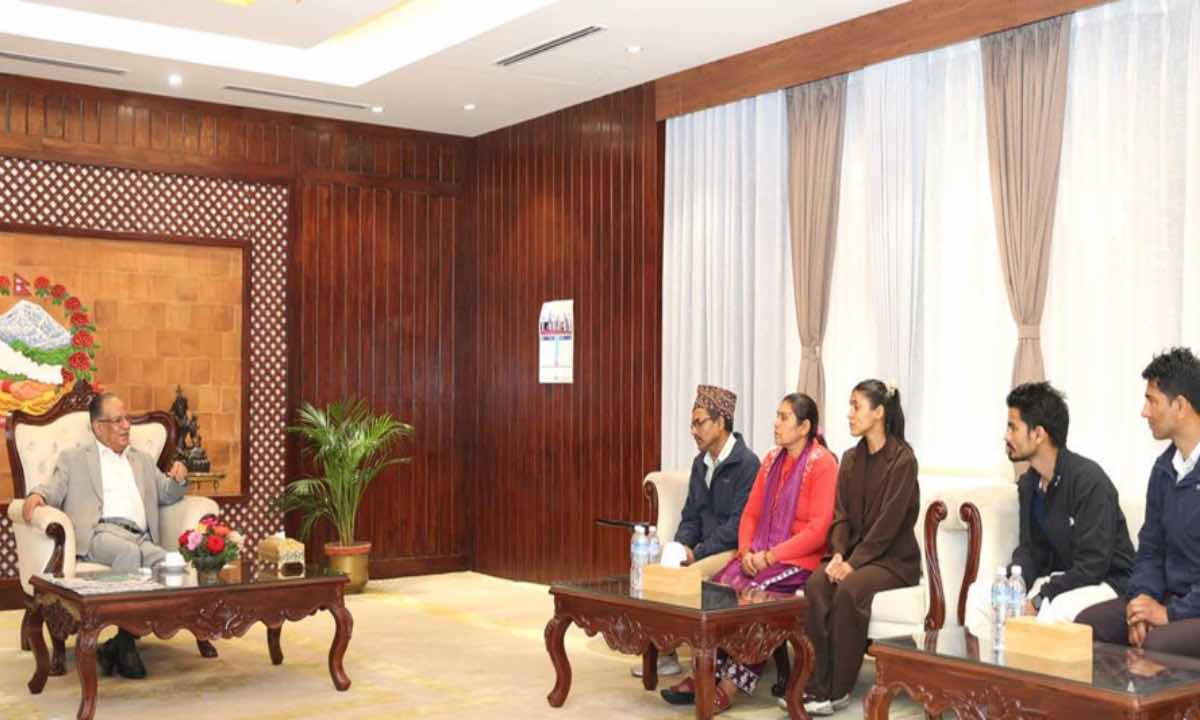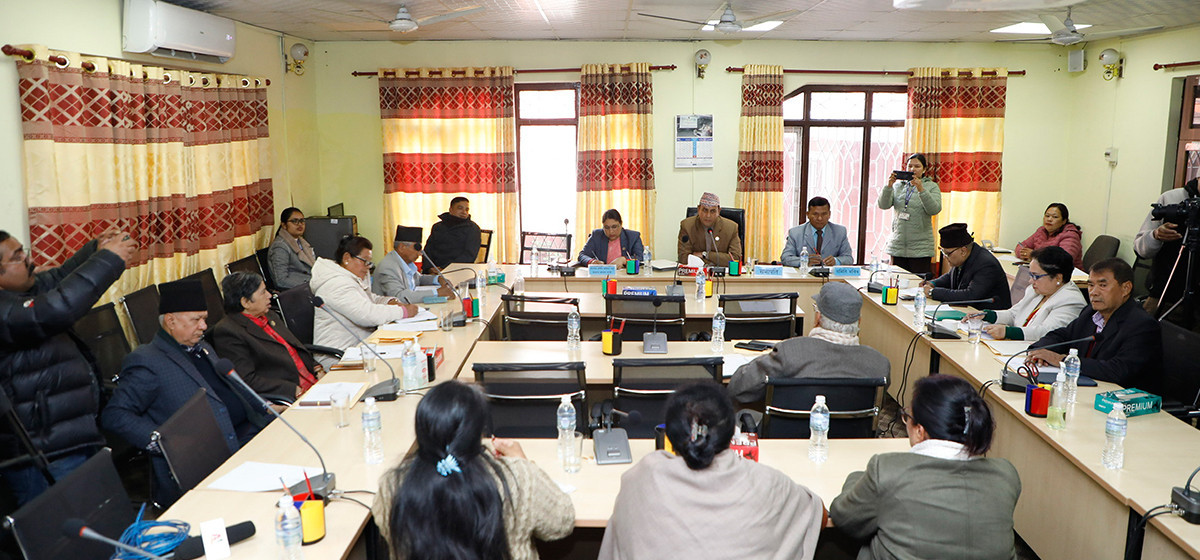
OR
Afghans vote amid chaos, corruption and Taliban threats
Published On: October 20, 2018 05:20 PM NPT By: Reuters

KABUL, Oct 20: Afghans voted on Saturday in parliamentary elections overshadowed by chaotic organization, allegations of corruption and violence that have forced a postponement of the vote in the strategic southern province of Kandahar. With Taliban insurgents in control of large areas of the country, thousands killed in the fighting and doubts about the success of the U.S. strategy to force the insurgents to accept peace talks by stepping up air strikes, the credibility of the Western-backed government is at stake. Several security incidents marred the polling day, with more than 30 incidents recorded. In the northern city of Kunduz 53 people were wounded and three killed in various incidents. In Nangarhar in the east, seven people were wounded in a blast and Ghor in the west at least 11 police were killed.
However, by early afternoon, there had been no major attack.
Wider election concerns have centered on technical and organizational problems with biometric voter registration equipment, polling stations not opening on time, missing election materials and delays forcing lengthy waits. The Independent Election Commission (IEC), the body overseeing the ballot, said voting hours would be extended in some centers to cope with demand and some polling stations, which had not opened at all, would be open on Sunday.
“The biggest problem is with the biometric machines, there are some sites where they’re not working and a lot of voters have been discouraged and have gone home,” said Nasibullah Sayedi, a voter in the western city of Herat.
There were similar reports from other areas including the capital Kabul. The Transparent Election Foundation of Afghanistan, a civil action group, said its team of observers found almost a third of polling centers were not in a position to use the biometric equipment. The untried technology, aimed at preventing election fraud, was rushed in at the last minute, over the objections of foreign partners who said there was not enough time to set up the system.
The organizational headaches come on top of fears of violence, particularly following the assassination of the police chief of Kandahar on Thursday, which forced authorities to delay the election in the province by a week.
Taliban militants have issued a series of statements telling people not to take part in what they consider a foreign-imposed process and warning election centers may be attacked.
FRAUD FEARS
Afghanistan’s political scene is still tainted by the aftermath of a disputed presidential vote in 2014 that forced the two main rival groupings to form an unstable partnership. Both sides were accused of massive electoral cheating.
The widespread allegations of voter fraud made before Saturday’s election present a challenge to the legitimacy of the process, seen by Afghanistan’s international partners as a vital step ahead of more important presidential elections next year. Due to the difficulty of collecting and collating results across Afghanistan, the overall results will not be known for at least two weeks.
But Western diplomats expressed cautious optimism that the process, while messy, had not been disastrous. Apparently high numbers turning out to vote suggested fears of voter apathy may have been overstated.
“I want candidates to serve the country and hear the voices of the disabled and the poor,” said Abdullah, a wheelchair-bound voter in Herat. “People ask what difference one person’s vote will make but I say, if a million disabled people come out to vote, don’t you think that will make a difference?”
In Baghlan province in northern Afghanistan, men and women came out in numbers to vote and created human chains around six polling stations to prevent the entry of suicide bombers.
Some 8.8 million voters have been registered but an unknown number, by some estimates as many as 50 percent or more, are believed to be fraudulently or incorrectly registered.
About 2,450 candidates are competing for places in the lower house, which has 250 seats, including one reserved for a candidate from the Sikh minority. Under the constitution, parliament reviews and ratifies laws but has little real power.
Election authorities originally planned 7,355 polling centers but only 5,100 will be able to open due to security concerns, according to the IEC.
Voting has also been delayed in Ghazni province, by arguments about the representation of different ethnic groups.
You May Like This

EC prohibits use of cap, T-shirt, bags bearing election symbol in election
KATHMANDU, Oct 22: The Election Commission has prohibited the production, distribution and use of cap, sticker, t-shirt, bag and shawl... Read More...

Bringing budget in between election will be against election code:EC
KATHMANDU, April 29: The Election Commission on Saturday has drawn the attention of the government stating that bringing an annual... Read More...

Election Commission presses for election laws
KATHMANDU, Jan 18 : Chief Election Commissioner Dr Ayodhi Prasad Yadav has said that there was no possibility of holding elections... Read More...




Just In
- Man dies in motorcycle accident in Dhanusha
- Nepal face early setback as four wickets fall in powerplay against UAE
- Australian unemployment rate rises to 3.8 percent in March
- Gold price increases by Rs 700 per tola
- Fire destroys wheat crop in Kanchanpur, Kailali
- Bipin Joshi's family meets PM Dahal
- State Affairs and Good Governance Committee meeting today
- Gold items weighing over 1 kg found in Air India aircraft at TIA














Leave A Comment